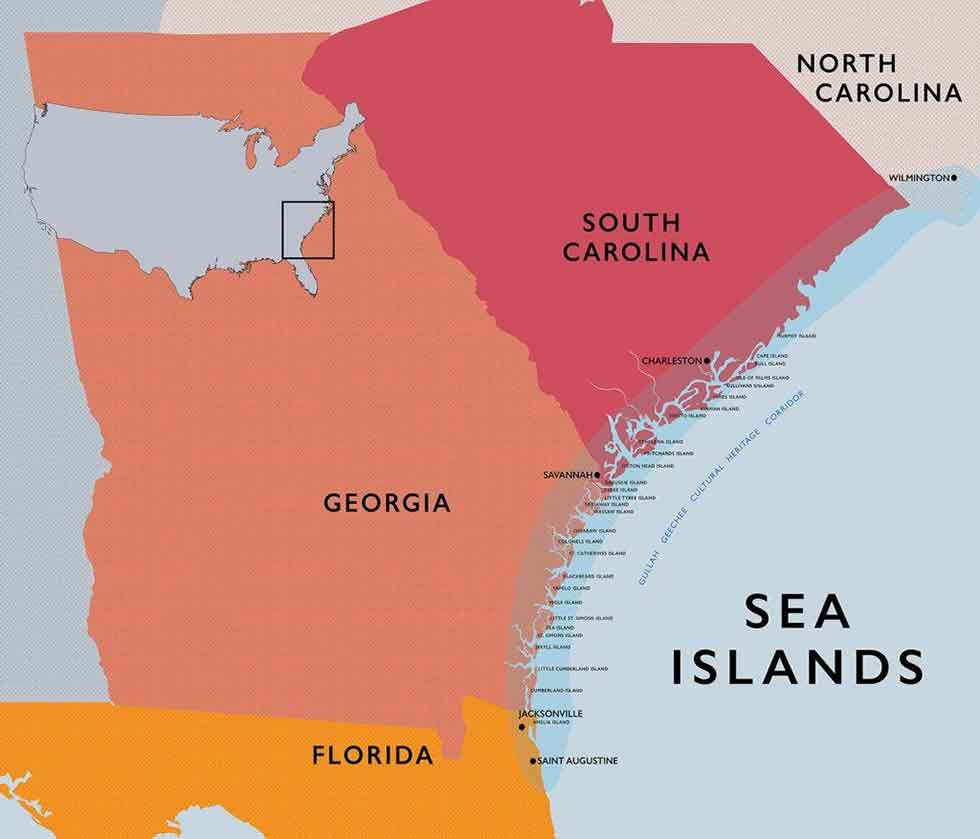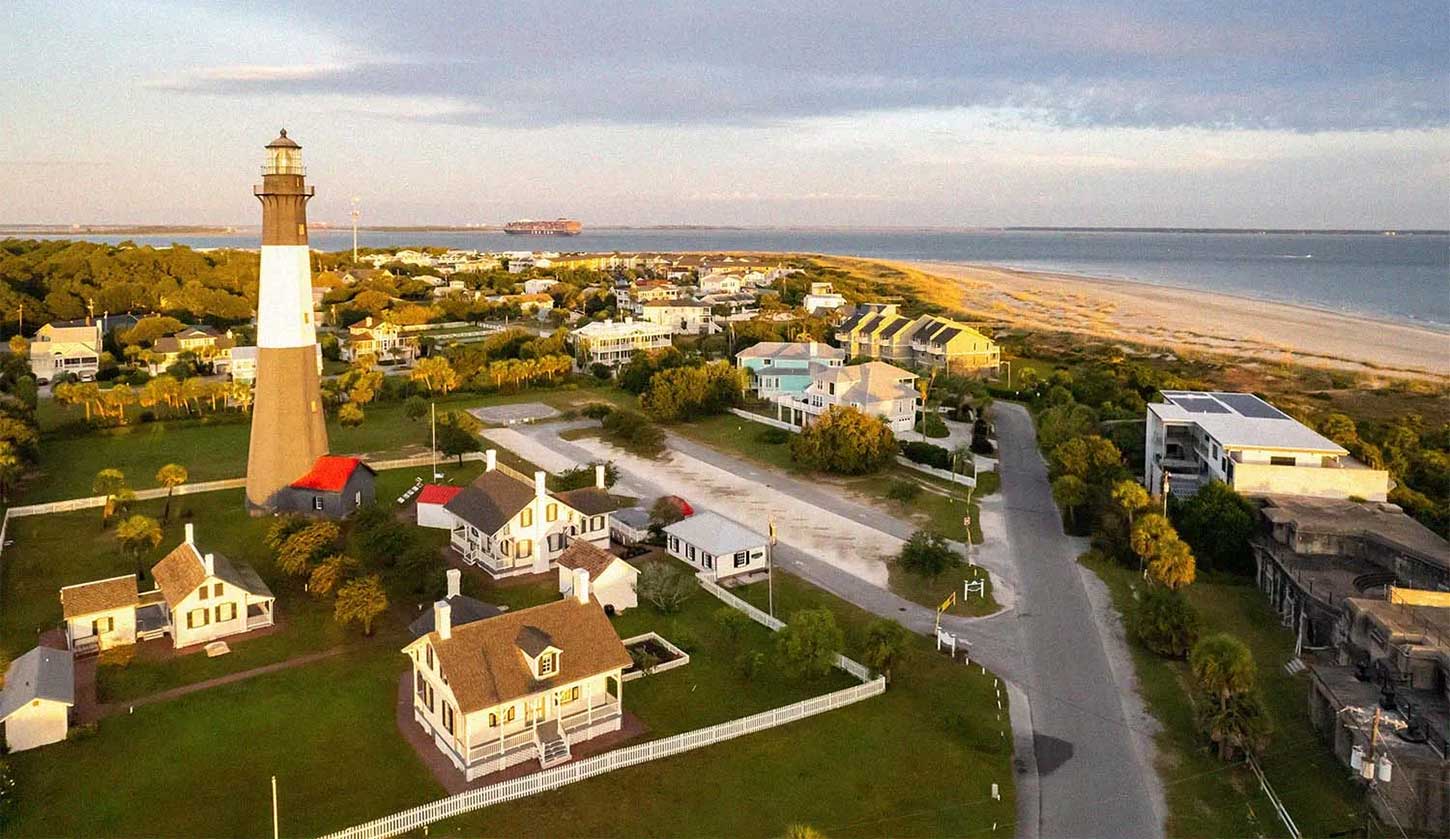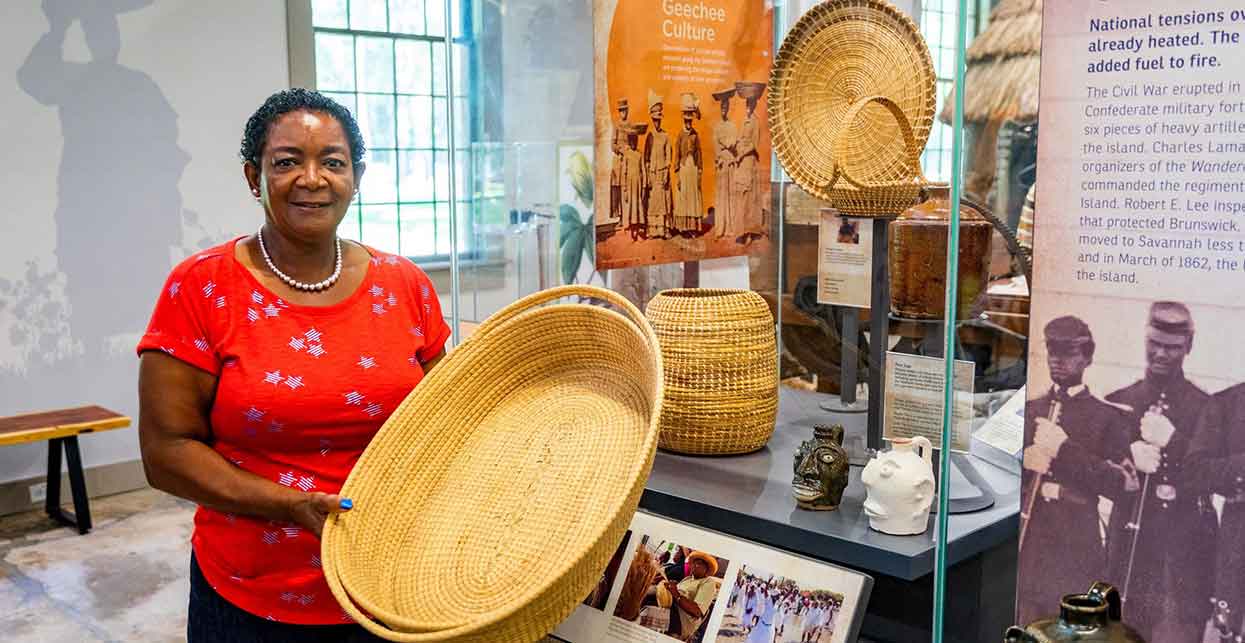CULTURE | Voices from the Island: How Georgia's Highest Court Protected a Community Fighting for Survival
![Queen Quet Marquetta Goodwine is the queen mother, chieftess and spokesperson of the the Gullah Geechee Nation in the southeast United States [Allison Griner] From Aljazeera](/images/2025/09/30/quet-marquetta-goodwine1450_large.jpg)
ATLANTA, Georgia, September 30, 2025 - On a remote island off Georgia's coast, where dirt roads wind past modest homes and the air carries echoes of West African dialects, a small community just won a battle that could determine whether their 200-year-old way of life survives into the next generation.
Georgia's Supreme Court ruled unanimously Tuesday that residents of Hogg Hummock on Sapelo Island have the constitutional right to vote on zoning changes that threaten to price them out of land their ancestors have occupied since emancipation.
The decision reverses a lower court ruling that had halted a referendum just days before voters were set to decide the community's fate.
"We feel vindicated," said Jazz Watts, a Hogg Hummock homeowner who organized the referendum effort. "The election should not have been stopped. It was stopping the voice of the people."
But this legal victory represents far more than a procedural win. It's a critical moment in the ongoing struggle to preserve one of America's most culturally significant African American communities—the Gullah-Geechee people, whose heritage offers an irreplaceable window into African traditions that survived the brutality of slavery.
 Historical Gullah Geechee IslandsA Living Link to Africa
Historical Gullah Geechee IslandsA Living Link to Africa

The Gullah-Geechee are descendants of enslaved Africans who worked rice, cotton, and indigo plantations along the southeastern coast. What makes their culture extraordinary is its authenticity.
Unlike most African American communities where centuries of forced assimilation eroded cultural memory, the isolation of barrier islands like Sapelo allowed the Gullah-Geechee to maintain direct connections to their African roots.
They speak a distinct Creole language that blends English with West African vocabulary and grammar. They weave sweetgrass baskets using techniques unchanged since their ancestors practiced them in Sierra Leone.
They cast fishing nets in patterns passed down through generations, prepare rice dishes that would be recognizable in West Africa, and maintain spiritual practices that scholars trace directly back across the Atlantic.
"It's a cultural and historical treasure," attorney Philip Thompson argued before the state's highest court, and he wasn't exaggerating.
The Gullah-Geechee represent one of the strongest living links between African Americans and their ancestral homelands. Their traditions, language, and knowledge systems survived where others were systematically destroyed.
The Last of a Disappearing World

Today, roughly 30 to 50 Black residents remain in Hogg Hummock, making it one of the last authentic Gullah-Geechee communities in existence.
The community earned a place on the National Register of Historic Places in 1996, official recognition of its unique importance to American history. But a plaque and federal designation can't protect against the economic forces threatening to do what slavery and Jim Crow couldn't: erase this community from the map.
When Protection Becomes Threat
Two years ago, McIntosh County commissioners—representing a county that is 65% white—passed zoning amendments that doubled the maximum size of homes allowed in Hogg Hummock. On its face, the change might seem innocuous or even beneficial. Larger homes, after all, could mean better living conditions.
But residents understood the devastating implications. Bigger homes mean higher property values. Higher property values mean increased property taxes. For a small, aging community of modest means living on land they've occupied for generations, skyrocketing tax bills would force an exodus as surely as any eviction notice.
It's a pattern repeated across America wherever historic Black communities occupy increasingly valuable real estate. Descendants of people who built wealth and community from nothing find themselves pushed out by the very appreciation of land their families have held for centuries.
 The ancient tradition of basketmaking continues as one of the oldest art forms of African origin in America. Today, Yvonne Groover teaches sweetgrass basketmaking classes throughout the region in an effort to preserve these traditions for future generations. The Power of the Ballot Box
The ancient tradition of basketmaking continues as one of the oldest art forms of African origin in America. Today, Yvonne Groover teaches sweetgrass basketmaking classes throughout the region in an effort to preserve these traditions for future generations. The Power of the Ballot Box

When county commissioners refused to reconsider, residents took matters into their own hands. They collected more than 2,300 signatures from registered McIntosh County voters—a remarkable feat for a rural community—to force a referendum on repealing the zoning changes.
The county sued to stop the vote. A lower court agreed, ruling that zoning ordinances couldn't be challenged by referendum. The decision came less than a week before Election Day, after hundreds of early votes had already been cast.
Tuesday's Supreme Court ruling rejected that interpretation. Justice John Ellington's opinion was clear: "Nothing in the text of the Zoning Provision in any way restricts a county electorate's authority to seek repeal of a zoning ordinance."
What Comes Next
The immediate question is when the referendum will be rescheduled. Attorney Dana Braun, representing the Hogg Hummock residents, said the ruling will give county residents "some real say" in whether they support the zoning changes.
But the larger question looms over every Gullah-Geechee community still standing: How do we preserve living cultures in the face of relentless economic pressure?
Hogg Hummock's residents aren't asking for special treatment. They're asking for the protections necessary to remain in homes their families have occupied since their ancestors gained freedom.
They're fighting to preserve not just property, but knowledge, language, traditions, and connections to Africa that exist nowhere else in America with such clarity and strength.
When we lose these communities, we don't just lose houses and land. We lose irreplaceable threads connecting us to our history, to Africa, to understanding how people created beauty and meaning and community under the worst circumstances imaginable.
The Supreme Court gave Hogg Hummock's residents their voices back. Now the question is whether their neighbors will listen.
-30-

 Ar
Ar  En
En